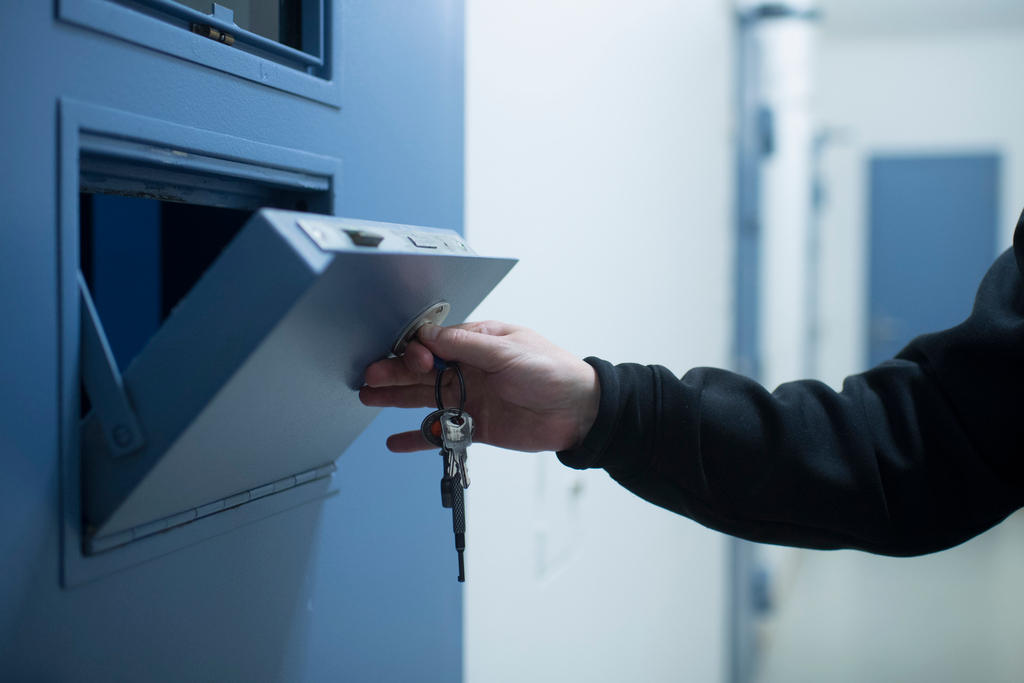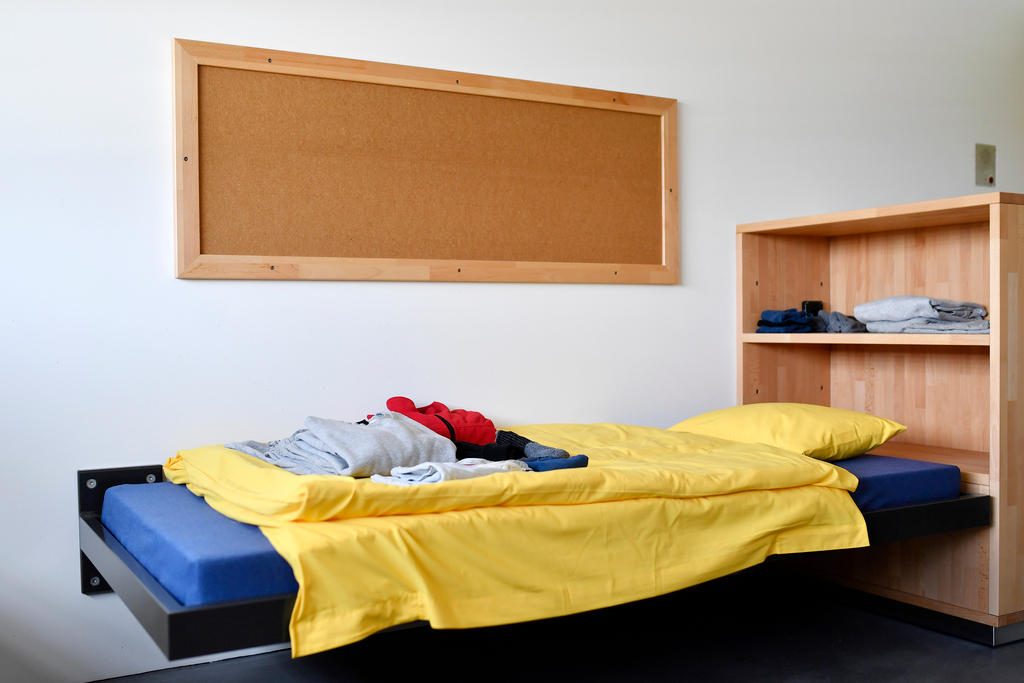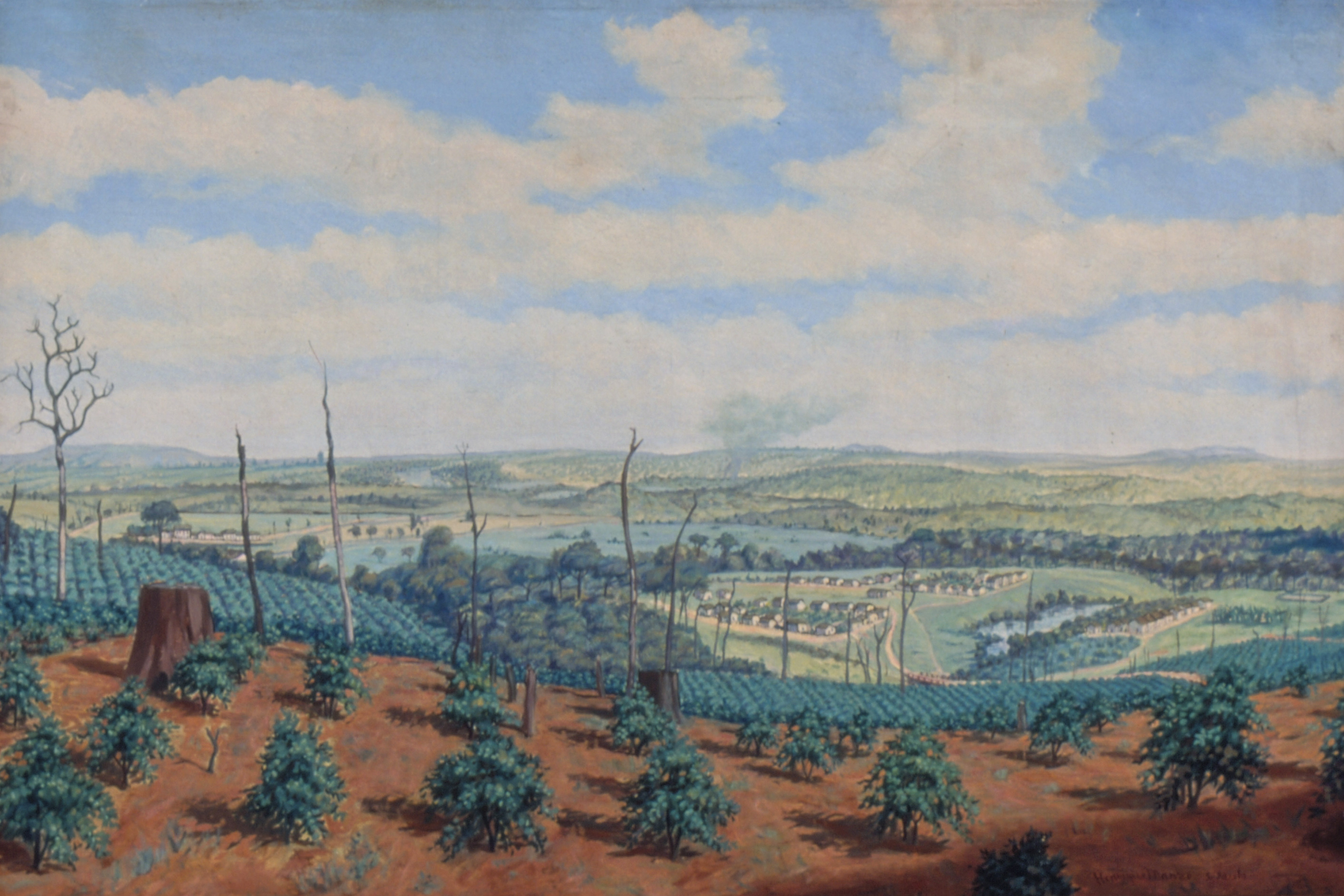
Foreign prisoner rates continue to increase

Between 1988 and 2017, the number of penal institutions fell by 30% in Switzerland, but the number of prisoners increased by 50%. More than half the prison population are now foreigners resident abroad.
While in 1988, 70 people per 100,000 inhabitants were locked up, by 2017 this had risen to 82 per 100,000, according to figures released by the Federal Statistical OfficeExternal link on Tuesday. In absolute figures the number of inmates increased from 4,621 to 6,907. The percentage of women has remained stable at around 6%.
Over the past three decades the proportion of prisoners with Swiss citizenship has dropped from an average of 31% in the first decade since 1988 to 20% in the second and third decades (it peaked at 44% in 1989).
The proportion of prisoners without Swiss citizenship but who live in Switzerland – including those in the asylum process – went from 28% up to 37% and back down to 28% over the three decades.
The real trend has been for prisoners who are resident abroad. In the first decade this group made up 41% of prisoners, in the second decade 43% and by the third decade 52%.
‘Zero-risk mentality’
Although the total prisoner figure of 6,907 for 2017 is down from the record of 7,054 seen in 2013, the long-term trend is for more and more people to be behind bars.
This is the consequence of harsher sentences, Jonas Weber, a professor of criminal law at the University of Bern, told Swiss public radioExternal link, SRF, on Tuesday.
Inmates are released later because the authorities have become more cautious, he added. “There’s a zero-risk mentality: the authorities only release a prisoner today if they are really sure he won’t reoffend when on parole.”

More
Switzerland’s leniency on criminals, explained

In compliance with the JTI standards
More: SWI swissinfo.ch certified by the Journalism Trust Initiative






























You can find an overview of ongoing debates with our journalists here . Please join us!
If you want to start a conversation about a topic raised in this article or want to report factual errors, email us at english@swissinfo.ch.